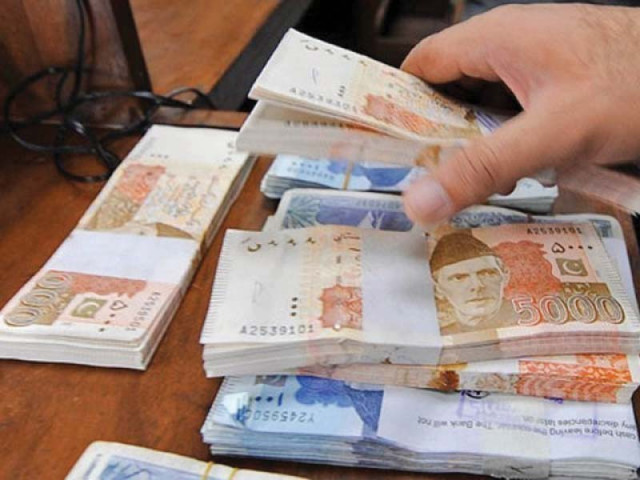FBR chief may be made PM’s aide on revenue
Move will give Shabbar Zaidi more autonomy in policy matters

For the new financial year, the IMF has given Rs5.503-trillion tax collection target to the FBR, which requires 44% annual growth over last year’s collection. The FBR has never achieved more than 22% growth in revenue collection in its history. PHOTO: FILE
Zaidi may be given the status of minister of state for revenue - a position that fell vacant this week after the prime minister appointed Hammad Azhar as Federal Minister for Economic Affairs Division, highly placed officials told The Express Tribune.
In place of Zaidi, the government may once again appoint FBR chairman from within the tax services, said the sources. Javed Ghani - a grade 22 officer of the Customs Group - was among front runners for the post, they added.
The prime minister on Friday again discussed the issue of Zaidi’s appointment as his special assistant, another source told The Express Tribune. Final decision would be taken very soon, he added.
Adviser to Prime Minister on Finance Dr Abdul Hafeez Shaikh’s views will be important on the appointment of new special assistant and the FBR chairman. PM Imran has given full authority to Shaikh in running affairs of the Revenue Division and Finance Division.
Sources said the prime minister has convened a meeting of grade 21 and 22 officers of the FBR on Wednesday. Earlier, the meeting was scheduled for last week but was postponed due to the PM’s engagements.
FBR witnesses biggest shakeup in its history
Sources said the premier wanted to have a say in the appointment of FBR members aimed at bringing people of his choice at the top.
Under the possible new arrangement, if Zaidi is elevated, he will have a free hand in taxation policies and the FBR chairman will focus on operational matters including revenue collection. During his over two-month stint, Zaidi’s focus has so far remained on policy and administrative reforms in the FBR.
“My focus will remain on bringing reforms in the FBR,” said Zaidi, when asked about his views on possible elevation as special assistant to the PM on revenue.
The federal cabinet has approved separation of tax policy from FBR’s operations but the decision has not yet been implemented in letter and spirit. The prime minister appointed Zaidi as the new FBR chairman on May 6. Zaidi is known for his extensive contribution to the development of taxation and fiscal laws in the country. He came from the private sector to bring reforms in the rotten tax machinery. The FBR chairman has so far tried to plug policy loopholes in the budget, which are causing massive revenue slippages.
The budgetary measure to seek computerised national identity card (CNIC) numbers from buyers of above Rs50,000 worth of goods from manufacturers is one such step that can plug sources of black economy.
Traders, who for decades have remained outside the tax net, staged a country-wide strike on Saturday against the CNIC decision. However, there was not a complete shutter-down strike as a few markets remained open.
Zaidi told media on Friday that the government would not budge from its position of getting CNIC numbers of goods buyers.
In order to broaden the tax base, Zaidi also wants that every person who has a home of more than 500 square yards and a car of 1,000cc should fulfil his statutory obligation and file annual income tax return.
There are 2.1 million people who have filed annual tax returns, although more than 50 million have paid withholding taxes, according to the FBR’s statistics.
Zaidi has also tried to break the nexus of corrupt taxmen with businesses. For the first time in the FBR’s history, the chairman has so far transferred more than 3,700 officials of the Inland Revenue Service and Customs Group.
In the next phase, he plans to reshuffle grade 21 officers, who serve as members of the FBR and chief commissioners in field formations.
The FBR has been facing serious administrative and policy problems. Its tax collection fell 1% in the last fiscal year to only Rs3.82 trillion - for the first time in its history. The FBR sustained a record Rs576-billion shortfall in revenues.
For the new financial year, the IMF has given Rs5.503-trillion tax collection target to the FBR, which requires 44% annual growth over last year’s collection. The FBR has never achieved more than 22% growth in revenue collection in its history.
The IMF’s staff level report showed that the FBR would have to collect Rs1.070 trillion in the first quarter (July-September), which would require 29% growth over the Rs832-billion collection in the same period of previous fiscal year.
Published in The Express Tribune, July 14th, 2019.
Like Business on Facebook, follow @TribuneBiz on Twitter to stay informed and join in the conversation.



















COMMENTS
Comments are moderated and generally will be posted if they are on-topic and not abusive.
For more information, please see our Comments FAQ